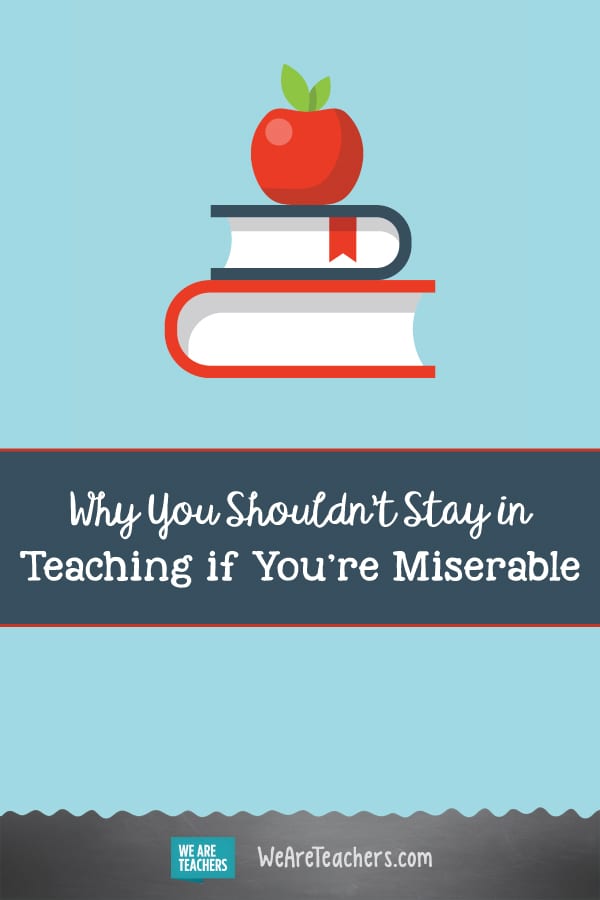One of the emails I get most often are from readers struggling with whether or not to leave teaching. These are not people who insult their kids or hate actual instruction. They’re heartbroken, miserable, and torn: they love teaching, they love their kids, but the stress—from one of 50,000 stressors that make up the life of a teacher—feels like too much to bear.
I could be projecting, but often I feel like these emails are asking me, a total stranger, for permission to leave. And I totally get it. I’ve come so close to burning out (twice), and both times I had to switch schools to catch my breath again. Both times I told myself, “I’m going to give this one more year.” And both times I felt a huge amount of guilt for what felt like quitting, abandoning my students, and turning my back on a cause I believed in.
It doesn’t have to be that way.
Whether you’re considering a new avenue in teaching or considering stepping out altogether, here are some reasons it’s okay to give yourself permission to leave.
You cannot be an effective teacher if you cannot take care of yourself.
I was “effective” according to the system when I was a new teacher and completely ignoring self-care, but I am five times more effective now that I’m not completely sacrificing my sleep, finances, health, and social life.
Your relationships may be suffering.
I think too many people look at the dissolution of Erin Gruwell’s marriage in the movie Freedom Writers as teaching inspiration instead of what it should be: a warning. We should not have to choose between having healthy relationships and being effective teachers. It’s true that spouses, significant others, and children of teachers sometimes have to take a back seat at certain times in the school year, but the back seat should not be their regular spot. (Unless they’re a small child in a car seat, but this was a metaphor, y’all.)
Your mental health could be at risk.
Many teachers—including myself—suffer from anxiety and/or depression, conditions that the stress of teaching tends to exacerbate. Many of these teachers have found coping strategies and techniques (there are some great ones here) that allow them to teach and function at a high level, but because these conditions are so nuanced from person to person, these strategies might not work for everyone.
Leaving teaching is not “abandoning” your students or their community.
Think of it as passing the torch rather than quitting halfway through a race. You ran hard and gave it your all, and now someone else who wants to run the race will pick up where you left off. Plus, there are many ways to stay involved in that community if it’s important to you—coaching a community sports team, mentoring, joining an organization in the area.
Leaving teaching doesn’t have to be permanent.
Unless you quit midway through your contract, you can always come back to the classroom after taking one or several years as a break.
There are so many ways to be a public education advocate outside of the classroom.
Chances are if you’re miserable teaching it’s not because of the kids or actual instruction, but because the systems in place (and the people running them) are making it nearly impossible to do your job well. One of the best things you can do if you leave the classroom is to continue to fight for public education in other ways, whether on a personal level as a mentor or beyond. I have heard from so many teachers in the past couple of years who have left the classroom in order to run for public offices, and let me tell you: it’s the most hopeful I’ve been in a long, long time.
Love Teach teaches middle school English and writes about it occasionally at www.loveteachblog.com but more often on Facebook, here.


